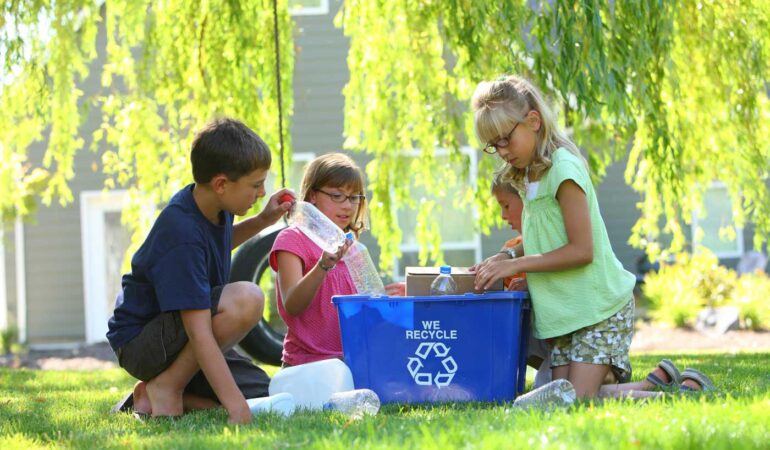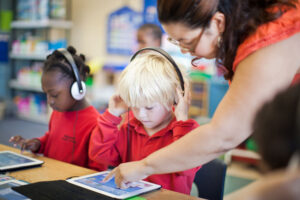
Zero Waste Classrooms: Sustainability in Action
Course Description
This course aims to empower educators with strategies to create Zero Waste Classrooms, contributing to a more sustainable future. Aligned with the goals of the European Green Deal and the 2021-2027 Erasmus+ Programme, the course emphasizes sustainability and teaches how to integrate zero waste principles into everyday classroom practices. Participants will learn to implement waste reduction, recycling, upcycling, and encourage eco-friendly behaviors in the classroom. The course also aims to raise awareness of environmental sustainability and help educators develop practical projects that can be transferred to various school settings.
Course Methodology
The course follows an activity-based, hands-on, and collaborative methodology. Participants will engage in project-based learning, creating sustainability-focused projects that promote zero waste in classrooms. Throughout the course, digital tools will be integrated to support educators in tracking and assessing the effectiveness of their sustainable practices. Educators will work in groups to share ideas and develop strategies that can be easily applied in their teaching environments. The focus will be on practical applications that promote sustainable education.
Course Objectives
- To teach educators how to integrate Zero Waste principles into their classrooms.
- To promote sustainable education through recycling, upcycling, and eco-friendly practices.
- To use digital tools for tracking and promoting sustainability in education.
- To encourage the development of collaborative projects that focus on reducing waste in schools.
Learning Outcomes
- Be able to implement Zero Waste strategies in their classrooms, reducing waste and promoting sustainability.
- Create lesson plans and activities that focus on environmental sustainability.
- Use digital tools to monitor the effectiveness of sustainable practices in the classroom.
- Collaborate on joint sustainability projects that can be applied in different school settings.
Tentative Course Program
Day 1: Introduction to Zero Waste and Sustainability in Schools
- Icebreaker Activity: “Eco-Bingo”
- Participants will connect by sharing their existing eco-friendly habits.
- Keywords: Eco-friendly practices, Zero Waste habits.
- Introduction to Zero Waste Principles
- What is Zero Waste, and how can it be integrated into classrooms?
- Source: European Green Deal and its impact on education.
- Keywords: Zero Waste, sustainability in education, green practices.
- Caffe Break
- Group Discussion:
- Participants will discuss current waste management practices in schools and explore areas for improvement.
- Keywords: Sustainable education, school waste management, eco-friendly practices.
- Workshop:
- Educators will brainstorm ideas for creating Zero Waste Classrooms.
- Keywords: Zero Waste strategies, sustainability projects.
Day 2: Sustainable Practices and Recycling in Schools
- Warm-up Activity: “Eco-Mapping”
- Participants will map out waste sources in their schools and identify ways to reduce them.
- Keywords: Waste management, recycling mapping, Zero Waste schools.
- Sustainable Practices in Schools
- How can schools implement recycling, upcycling, and waste reduction strategies?
- Source: UNESCO Education for Sustainable Development guidelines.
- Keywords: Recycling in schools, upcycling projects, sustainable education.
- Using Digital Tools for Sustainability
- Tools like Padlet, Google Sheets, and Eco-Schools platforms will be used to track and monitor sustainability efforts.
- Keywords: Digital tools, sustainability tracking, environmental monitoring.
- Caffe Break
- Group Project Development:
- Participants will collaborate to design sustainability projects for their schools.
- Keywords: Collaborative projects, sustainable education strategies, Zero Waste.
Day 3: Promoting Sustainability and Eco-Friendly Behaviors in Classrooms
- Warm-up Activity: “Eco-Friendly Habits Challenge”
- Participants share their eco-friendly habits and discuss how to implement them in the classroom.
- Keywords: Eco-friendly behaviors, sustainable classrooms, Zero Waste habits.
- Encouraging Eco-Friendly Behaviors Among Students
- How to engage students in sustainability and encourage them to take responsibility for waste reduction.
- Keywords: Sustainability education, student engagement in sustainability, Zero Waste schools.
- Group Activity:
- Participants will develop a “Zero Waste Day” event plan for their schools.
- Keywords: Zero Waste Day, student-led sustainability projects, sustainable education.
- Caffe Break
- Project Presentations and Feedback:
- Participants will present their plans for a Zero Waste classroom and receive feedback.
- Keywords: Zero Waste projects, sustainability in action, eco-friendly classroom practices.
Day 4: Integrating Sustainability into School Culture
- The Role of Schools in Promoting Sustainability
- How can Zero Waste practices become part of the school’s overall culture?
- Keywords: Sustainable school culture, environmental sustainability, Zero Waste initiatives.
- Case Studies on Sustainable Schools
- Real-world examples of schools that have successfully implemented Zero Waste programs.
- Keywords: Sustainable school case studies, best practices for Zero Waste, sustainability projects.
- Caffe Break
- Group Project Development:
- Participants will develop plans to integrate sustainability into their school’s culture.
- Keywords: Collaborative projects, Zero Waste culture, school-wide sustainability.
Day 5: Course Evaluation, Certification, and Celebration
- Course Evaluation
- Keywords: Sustainability in education, Zero Waste classrooms, environmental education.
- Future Sustainability Collaborations
- Discussion on potential collaborations for future sustainability projects.
- Keywords: Sustainability collaborations, future projects, environmental partnerships.
- Certification Ceremony and Course Cake Cutting
- Cultural Excursion Support
Course Evaluation and Certification
- At the end of the course, participants will present the products they have developed and receive feedback.
- Successful participants will receive their certificates and celebrate with a course cake cutting.
- On the final day, participants will also be offered cultural excursion support to explore the local area.
Follow-up and Support
After the course, participants will be provided with digital and printed materials, and an email group will be created for continuous collaboration and sharing of ideas among participants.
*Please note that course activities and content may vary depending on participants’ preferences and the instructor leading the session. Any changes to the course are at the discretion of the instructor. If there is a specific topic you would like to include in the course content, please let us know in advance.
Course Info
- Duration: 5 Days
- Location: All Location
- Cost: € 80-Day
- Certificate: Yes
- Prerequisites: No









